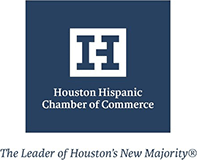Hispanic-owned businesses will lead economic comeback – but they’ll need help
During a recent visit with the Unites States Hispanic Chamber of Commerce, President Joe Biden proclaimed that the Hispanic business community will lead the economic recovery following the downturn caused by the Covid-19 pandemic.
He’s right, but the Hispanic business community will need the commitment of the federal government to achieve the goal of getting the American economy back to its full potential. And that commitment can’t be fleeting. It must be designed to erase generations of underinvestment, a lack of access to capital, and a corporate leadership structure that largely excludes the Hispanic community.
Prior to the pandemic, Hispanics played a central role in the country’s economic success and the growth of the small business community. In the Greater Houston region, the number of Hispanic-owned businesses has doubled over the past decade and annual Hispanic spending power has surpassed $65 billion, according to a 2017 Hispanic Houston Impact Summit report. Nationally, the Latino share of new entrepreneurs has more than doubled since 2000, and the number of total Latino-owned businesses has grown by more than 50% in that same period, injecting $700 billion into the national economy annually, according to a 2018 CNBC report.
Yet, the pandemic has dealt a disproportionate blow to the Hispanic business community and threatens to erase many of those gains.
Unemployment among Hispanic workers peaked near 20% in mid-2020 and currently sits four percentage points higher than its pre-pandemic levels. While overall consumer spending is still down 5% from its 2020 level, drops in spending on entertainment and recreation and spending on restaurants and hotels were down 53% and 38%, respectively, the Urban Institute reported in a September 2020 blog post. Hispanic workers have an outsized role in these industries, resulting in a larger share of lost jobs and decreased wages. In turn, the Hispanic community faces higher rates of food, housing, and economic insecurity than all other demographic groups.
The University of Houston Hobby School of Public Affairs conducted a survey of Houston Hispanic business owners in 2020 that illustrates most business owners expected a drop in sales of at least 60% compared to the previous year. Similarly, another 14% of the owners surveyed said they closed at least one branch of their business and another 11% reported they were unable to make rent payments on their business. To alleviate the economic pain caused by the pandemic, 25% of owners enacted temporary salary reductions, 35% reduced work schedules, and 50% consolidated programs to reduce costs.
The American Rescue Plan Act (ARPA) represents some much-welcomed relief for Hispanic entrepreneurs and business owners. Provisions like emergency support to rehire employees, the extension of the Paycheck Protection Program, a Small Business Opportunity Fund, and community banking initiatives will all help many business owners get back on their feet. These initiatives will help make up some of the losses caused by Covid-19, but the administration must focus its energy on alleviating the barriers that stand in the way of Hispanic business owners to help unleash the full potential of the economic recovery.
Historically, Hispanics have had significant difficulty securing capital for their business from traditional financial institutions, relying on personal savings or personal guarantees to fund their ventures instead. Particular focus should be placed on businesses with under $1 million in annual revenue. Hispanic owners in this category are denied any business funding at a rate of 40% compared to just over 20% of non-Latino white-owned businesses, per a 2018 Stanford Graduate School of Business Latino Entrepreneurship Initiative report.
Similarly, Hispanic business owners are far more reliant on relationship and community banking than on funding through traditional means. With that knowledge, the administration should look to distribute the resources made available through the Small Business Opportunity Fund through local relief funds and organizations. Community development financial institutions should also be engaged to help raise awareness around the resources available and provide business owners with the information they need to access capital.
Hispanic-owned businesses have been largely shut out of the Paycheck Protection Program, which makes the need for capital even more pressing. The administration rightly allowed small firms early access to the latest round of PPP funding, but more emphasis — and potentially another round of funding — should be made available to the business sectors most impacted by the pandemic. The food service, construction, accommodation, retail, and health care sectors have been most impacted by the pandemic and Hispanics are overrepresented in these professions. Providing another round of access to PPP dollars would help give businesses in these industries the additional support they need.
The Hispanic business community is poised to lead the economic recovery ahead, but it needs help. Without it, Hispanic business owners — and the American economy — will struggle to regain the momentum needed for a robust recovery.
As published by the Houston Business Journal https://www.bizjournals.com/houston/news/2021/05/05/hispanic-owned-businesses-economic-comeback.html

